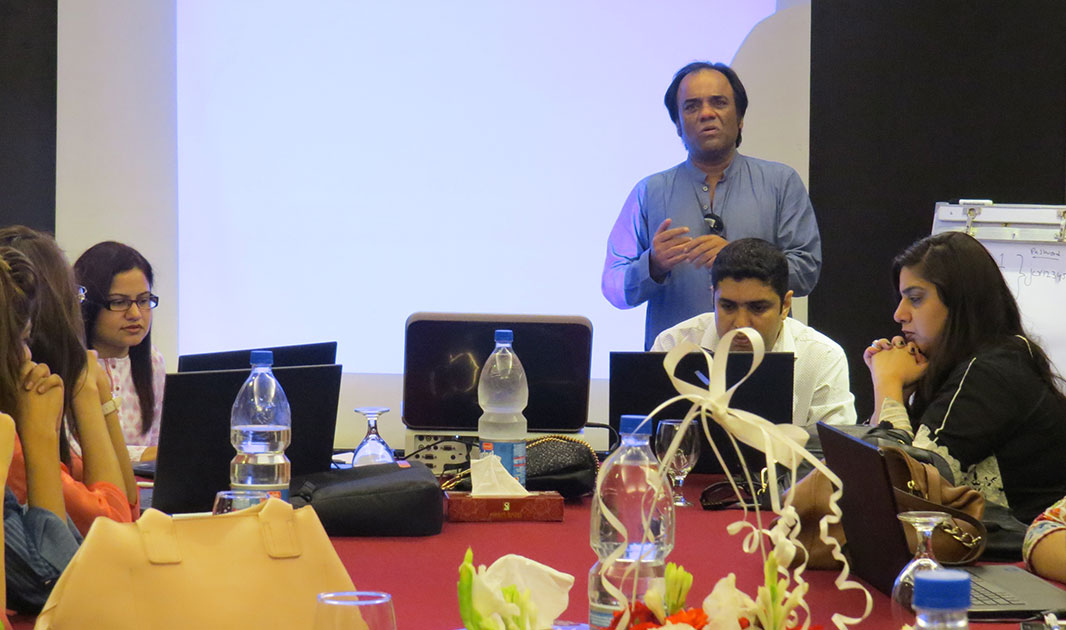MF360 organised a training workshop for female journalists on “Bridging the Information Gap: Investigative Reporting with public records”. As many as 15 journalists from Punjab, Sindh, Balochistan, Khyber Pakhtunkhwa and Islamabad attended the workshop.
Senior Journalist Mubasher Bukhari, Bureau Chief Dawn, Lahore, Sheraz Hasnat, Editor Fortnightly Truth Tracker and News Lens Pakistan Fatima Ali, Senior Reporter of Geo News in Multan Maimoona Saeed and Media Trainer Pernia Khan discussed various skills for investigative journalism with the participants.
Proceedings of Day 1
The first day, commencing at 9 am, began with the introduction of the participants. Day 1, divided into three sessions, included the following activities:
Session One – Developing Focus Statement of the Story:
Mainly conducted by Fatima Ali, the session on developing focus statement of the story stressed on creating an accurate story idea with an outline. It was discussed that the concept of identifying focus of a story is quite rare in Pakistan, which is the reason why most investigative reports have a vague, or mix, or/and misleading intro or/and lede/lead. This results in creating a confusing or ‘BAD’ story despite the amount of hard work put into it.
The right focus takes a journalist in right direction, while offering readers a clear concept of the matter/topic.
Specific stress was given on identifying the 5Ws and H. It was particularly informed that the focus must have ‘What,’ ‘Why’ and ‘Who’ from among the 5 Ws and H.
Following this, an activity was carried in which the participants developed tentative story ideas with the ‘right’ focus.
Introduction to The Right to Information Laws
A detailed introduction and importance of Right to Information Laws (RTI/RTI Laws) for Investigative Journalism was given. Participants were divided into groups presenting their respective Provinces to study on RTI Laws. The teams presented a brief on RTI Laws of their provinces, while highlighting their respective salient features. This was followed by a comparison between RTI Laws of provinces to analyze the effectiveness/impact of RTI on making of an investigative story.
In the end of the session, participants rephrased the focus statement in light of relevant RTI Laws.
Because the discussion following the activity was engaging, Session 3 of Day 1 was carried on to Day 2. Day 1 concluded at 5pm.























